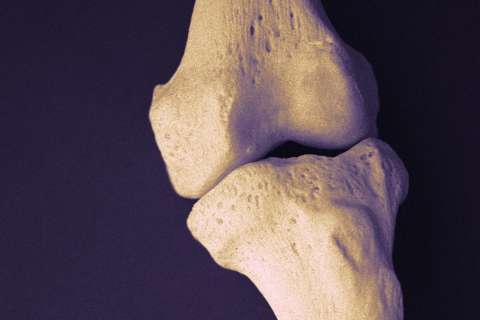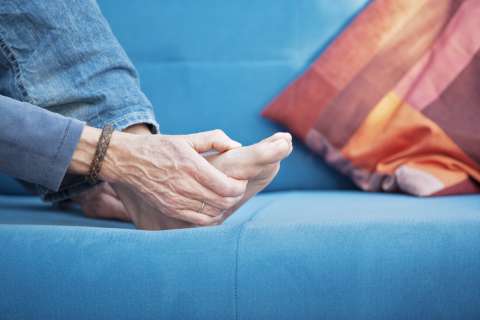Hello, dear readers, and welcome back to our monthly letters column. We're getting closer to autumn, but in much of the country, heat waves continue. Please be sure to take precautions. Drink enough water throughout the day to fuel your body's natural cooling system, which is sweating. When possible, stay indoors during the hottest hours. And, if needed, take shelter in public places in your area with air conditioning, such as malls, community centers, libraries or local cooling centers. Even a short break in a cooler environment can be helpful. And now, onward to the mail:
-- We recently wrote about spinal stenosis, which is when the spaces and hollows of the spinal column begin to narrow. The resulting pressure on the spinal cord and nerve roots causes symptoms that include pain, burning, numbness and weakness in the back, legs or feet. That prompted a question from a reader who developed these symptoms. "I had an MRI two years ago, and it showed some spinal stenosis and a mild protrusion on the disc," he wrote. "I developed numbness in my left leg and tingling in both feet, but no buttock or thigh pain. Two chiropractors and a physical therapist have offered conflicting advice, and none of their suggestions seem to work. What kind of specialist should I see?"
You would be best served by seeing a spine specialist, either a neurosurgeon or an orthopedic surgeon. A disc protrusion, if mild, can be treated with physical therapy and anti-inflammatories. It can sometimes require an epidural steroid injection. Some people with spinal stenosis are helped by a minimally invasive procedure called Vertiflex, which uses a small implant to lessen pressure within the spine to ease symptoms.
-- We recently discussed a sensitive and accurate blood test known as A1C, which measures someone's average blood sugar levels over the previous eight- or 12-week period. It is used to diagnose Type 2 diabetes. This is a condition in which the body stops responding properly to insulin, which leads to chronic high blood sugar.
A reader with high A1C results sent us a question. "I need to lower my A1C -- can diet and exercise be effective?" they asked. "How much of a reversal can you see?" The answer is, yes, A1C can be lowered by lifestyle modifications. This is achieved by minimizing added sugar in the diet, avoiding refined carbohydrates and highly processed foods, getting regular exercise and reaching a healthy weight. Each of these contribute to improving the body's response to insulin. How much you can lower your A1C with lifestyle changes depends on each person's general health, metabolism and genetics. If your doctor has outlined a treatment plan that includes medication, it's important to follow through.
Thank you, as always, for taking the time to write. It's wonderful to hear when a column has helped you, or that you simply find the information useful or instructive. We read every letter, and we will continue to try to respond to as many as possible.
(Send your questions to [email protected], or write: Ask the Doctors, c/o UCLA Health Sciences Media Relations, 10960 Wilshire Blvd., Suite 1955, Los Angeles, CA, 90024. Owing to the volume of mail, personal replies cannot be provided.)





